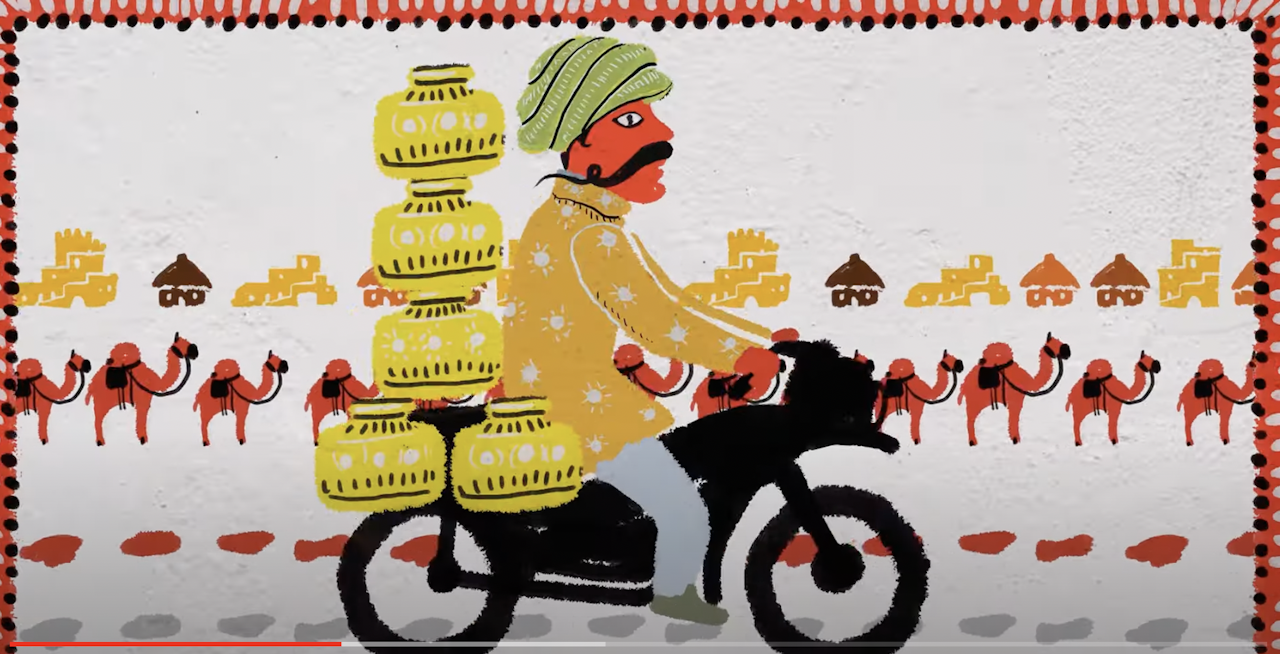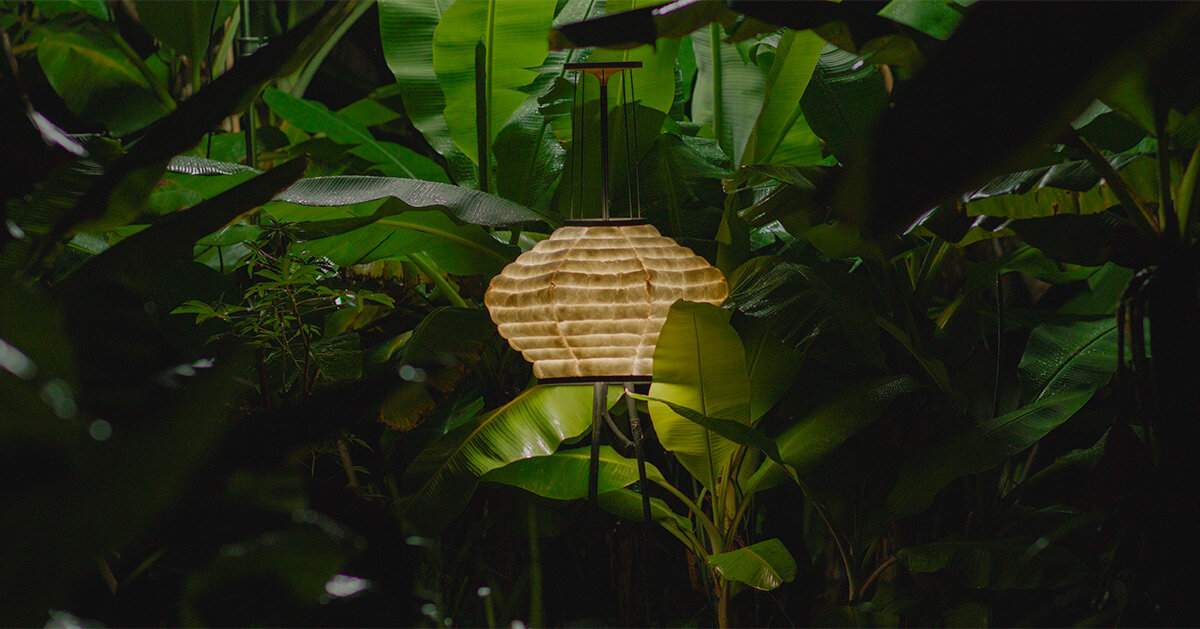Filed under:
Gotta make ’em all, papercraft!
Are you ready to get your hands sticky and prove yourself the best that ever was? Why not get creative and put together some of these pleasant Pokémon arts and crafts projects? Like most artistic endeavors, the journey is more important than the destination, so for each project I’ve put together easy-to-follow step-by-step instructions and downloadable templates to print, cut out, fold together, and turn into recognizable critters.
Welcome to Polygon Summer Camp! This summer we’re bringing you the best and brightest stories, all about camp vibes, that will make you feel all warm and fuzzy inside. Join us!
Metapod is a Pokémon well known for getting progressively harder throughout a battle, so you may be pleasantly surprised to find out this extravagant egg carton Metapod project only gets easier to put together with each step.
Recommended supplies: An egg carton, a printer, green paint, tissue paper, glue (a glue gun if possible), and a pair of scissors or a craft knife
Step 1: Carefully cut out parts from an egg carton, following the outlines on the image below. Each piece has been made a different color to help illustrate where to cut. I used a craft knife, slowly making my way through the material by poking lots of holes through it.
When you’re done, you should have five pieces that look like this:
Step 2: Carefully paint the pieces of the egg carton using green paint. I used an acrylic paint; however, the material of the egg carton is quite porous and rough, so most paints should work just fine.
Step 3: Download and print out the template and cut out the parts of the Metapod craft along the solid black outline. There are two versions of the template available; one features a fully colored texture, and the other has just the line art on the template. With the second version, you can print the parts onto colored cards or color the parts in yourself with markers, paints, etc.
Step 4: Fold the core of the Metapod along the dotted line shown below, folding down lines that are dash-dash and folding up lines that are dash-dot-dash.
Step 5: Glue down the tabs marked “A” and “B” to the corresponding spaces and then glue town tabs “C” and “D” as shown.
Step 6: Attach the two cone pieces to the papercraft core, slotting them onto the ends as shown and gluing in place using PVA glue or a hot glue gun. If the carton cones are too large, you can fill them out using a mixture of PVA glue and tissue paper. If the cones are too small, don’t be afraid to really squash this paper core into them. Those little imperfections will only make the end result more charming.
Step 7: Glue the corners of the egg carton to the sides of the Metapod as shown, using hot glue or tissue and PVA.
Step 8: Cover up the remaining hole in the middle with the last piece of the egg carton and attach the eyes from the printed template to complete the project!
Lack the materials or patience necessary to build your own Metapod? In the mood for something a little speedier where you don’t have to wait for paint to dry? Get your fingers ready to fold together your own stretchy and flexible Furret using a paper accordion.
Recommended supplies: A printer, glue, scissors, and brown and cream card stock
Step 1: Download and print out the template and cut out the parts of the Furret craft along the solid black outline. There are two versions of the template available; one features fully colored textures, and the other has just the line art on the template, meaning you can print the parts onto colored cards or color the parts in yourself with markers, paints, etc. The textured version of the template also comes with optional back printing files, so you can print out the page, then load it back into the printer so both sides get colored in. The following steps apply to both versions of the template whether you’re printed double-sided or not.
Step 2: Glue the tabs marked “A” and “B” together to create two long strips of paper. Now glue those strips together at a right angle using the tab marked “C,” as shown. Most available glues will work just fine for this craft project, but the springy nature of a paper accordion means you’ll have better results with a stronger adhesive. I used standard PVA glue applied in a thin layer using an old paintbrush.
Step 3: Fold the long strips of paper along the dotted lines one over the other as shown, interlocking the pieces and creating the paper accordion.
Step 4: Fold over the leg pieces along the dotted lines and glue flat. This will make the legs more rigid. Now glue the leg marked “D” to the tab also marked “D.” Repeat this with the legs marked “E,” “F,” and “G,” as shown. If you’re finding it a little too fiddly to glue the legs inside of the accordion, you can carefully unfold the long strips and glue the legs onto the strips while they’re flat instead.
Step 5: Glue the face of the Furret to the front of the paper accordion using the tab marked “H” to complete this project.
The great thing about a paper accordion is when you’re not stretching them out, you can condense them down to a relatively flat shape. You can send one along with a greeting card in the mail, put one in your pocket, or keep one in your wallet in place of a picture of a loved one (if you really want to).
If that previous project wasn’t quite gargantuan enough to fill that Pokémon craft-shaped hole in your heart, then prepare to get sticky and glue together your very own Gyarados using a simple paper chain.
Recommended supplies: A printer, glue, scissors, and blue and cream card stock
Step 1: Download and print out both pages of the template and cut out the parts of the Gyarados along the solid black outline. There are two versions of the template available; one features fully colored textures, and the other has just the line art on the template, meaning you can print the parts onto colored cards or color the parts in yourself with markers, paints, etc. The textured version of the template also comes with optional back printing files, so you can print out the page, then load it back into the printer so both sides get colored in. The following steps apply to both versions of the template whether you’re printed double-sided or not.
Step 2: Fold the parts of the Gyarados along the dotted lines following the key, folding down lines that are dash-dash and folding up lines that are dash-dot-dash. The dotted lines on the second page should not be folded, as they’re used to show where to line up the paper loops.
Step 3: Glue the tabs marked “A” and “B” to the inside of the top of the head as shown.
Step 4: Fold around and then glue down the tab marked “C” to make a loop as shown. Glue the tabs marked “D” and “E” to the back of the fins found on the sides of the Gyarados head piece.
Step 5: Place the strip marked “F” through the loop on the head, curve it around, and glue down the tab marked “F” as shown. The dotted lines on these strips should help line up the ends of the loops for a more uniform appearance. Repeat this step with the strips marked “G,” “H,” “I,” “J,” and “K” in order. If you’re building this project on a thicker card stock, you can pull the paper strips over the edge of a table to help them curve without creasing, cracking, or breaking. Alternatively, you can delicately pull the strips through your fingers to curve them before gluing. Just be careful not to get any paper cuts!
Step 6: Fold over and then glue the tail fin to the back of the last loop. Attach the two back fin sections to the second and fourth loops as shown to finish this project. You can tie up your newly made Gyarados using string or add additional paper loops to hang it from the ceiling.
If you’re scrolling through this article and thinking to yourself, I don’t have the ability to make any of these projects; everything I make ends up looking like a crumpled-up mess, then this last project is perfect for you. Make your own joyful Jigglypuff using a scrunched-up paper ball.
Recommended supplies: A printer, pink tissue or crêpe paper, two toothpicks, glue, and a pair of scissors
Step 1: Scrunch up your own paper ball. I would recommend using some pink tissue or crêpe paper. Not all scrunched-up paper balls are made equal. Sometimes you’ll end up with a long sausage shape, or a really flat and uninteresting outcome. I’ve found twisting my hands in the opposite direction of one another gives the best results with the most uniformly round shape.
Step 2: Download and print out the template and cut out the parts of the Jigglypuff along the solid black outline. There are two versions of the template available. One features fully colored textures, and the other has just the line art on the template, meaning you can print the parts onto colored cards or color the parts in yourself with markers, paints, etc. The template has the pieces needed in two different sizes, so depending on the size of the paper ball you make, you’ll want to cut out and add at a different scale.
Step 3: Fold over the ears along the dotted lines and glue the sides together. Attach the ear pieces to toothpicks either by gluing them in place or using a piece of clear tape.
Step 4: Glue the eyes, hair, and feet to the paper ball as shown.
Step 5: Push the toothpicks into the paper ball to attach the ears, being careful not to accidentally poke your hands. And that’s it! You’re all set.
If a crumpled-up mess covered in tape, glue, and toothpicks doesn’t get you in the mood to get stuck in and build some crafty Pokémon this summer, I’m not sure what will. Perhaps you’re reading through these tutorials and thinking to yourself, I could do better than that! If so, carry that energy with you and don’t be afraid to make mistakes. And remember: The most difficult part of many craft projects is the cleaning up at the end. Happy crafting!
Please check your email to find a confirmation email, and follow the steps to confirm your humanity.
Oops. Something went wrong. Please enter a valid email and try again.



